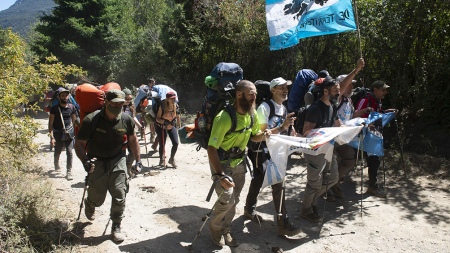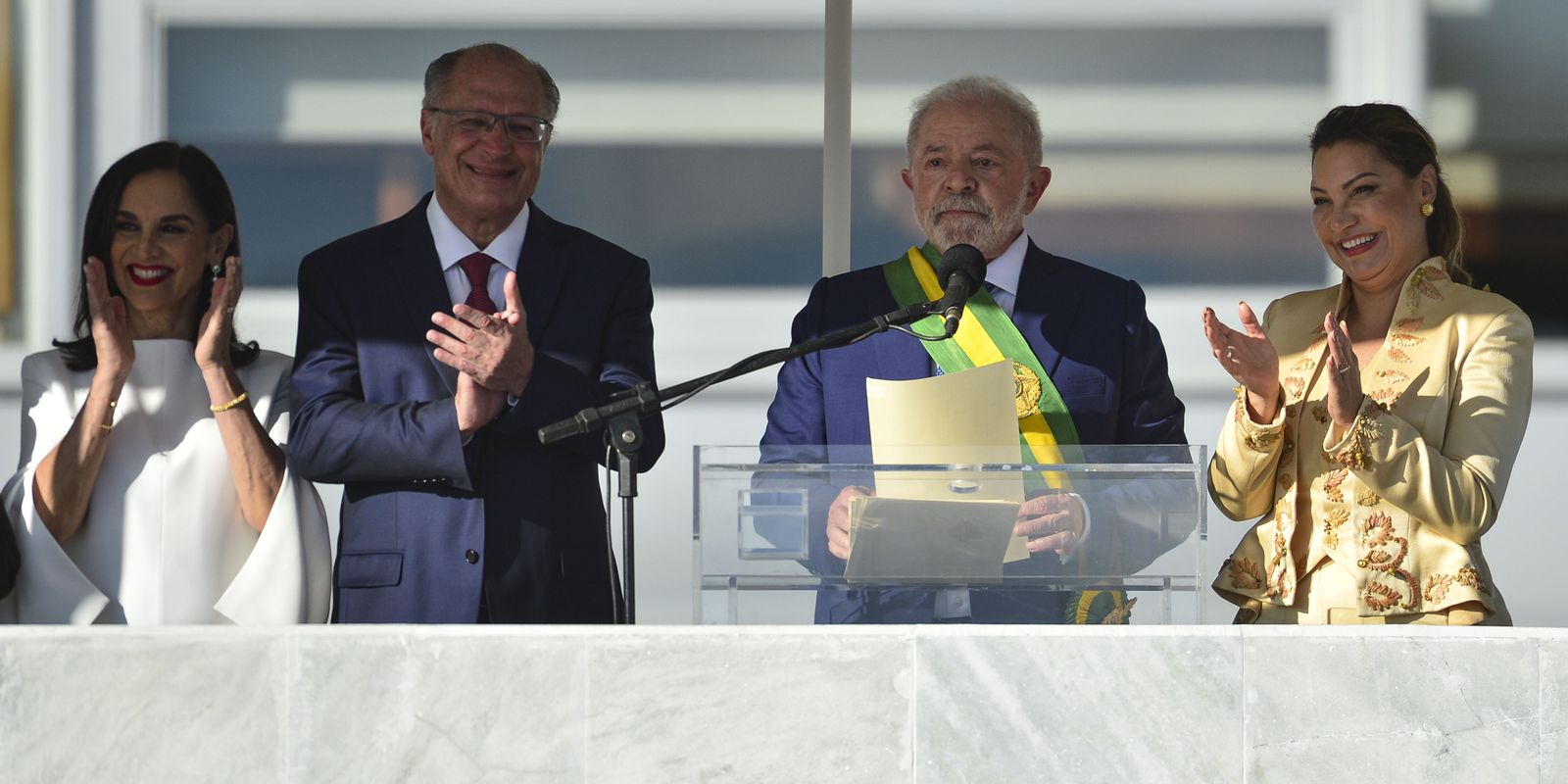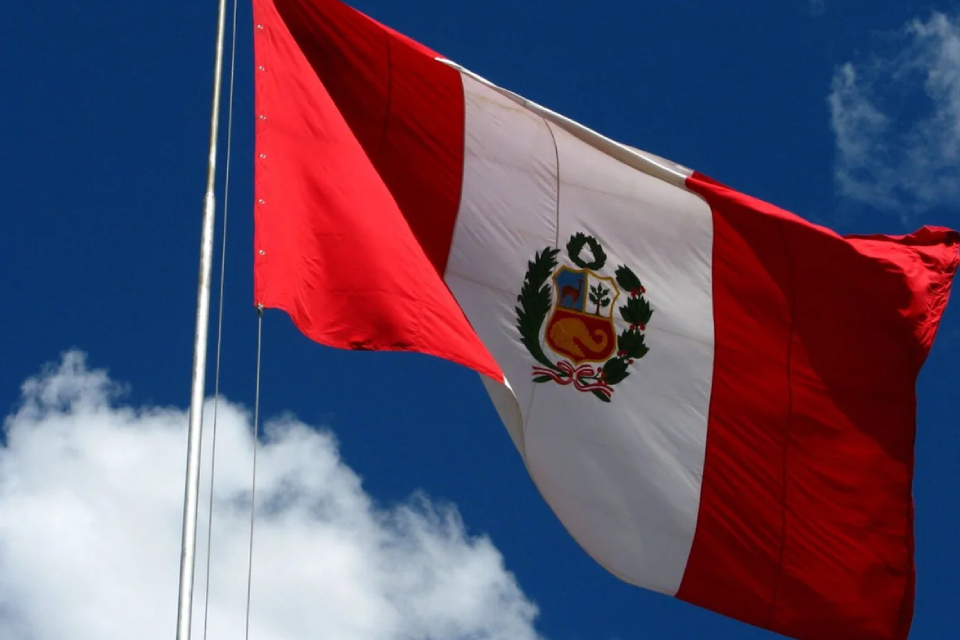Social, political and union organizations will carry out the seventh march to Lago Escondido, between the end of January and the beginning of February, to denounce that there is a “British enclave” there that functions as “the cave of a mafia power that seeks to condition democracy”.
“The fight is for these public roads to be enabled and to denounce that there is a British enclave there. It is a mafia power that defines policies to condition democratic governments and condemn popular leaders,” he told Télam Julio César Urien, the president of the Interactive Foundation to Promote the Culture of Water (Fipca)the organization leading the march.
The procession will march towards the lake from January 26 to February 10 along the two paths authorized by the provincial court, the mountain path and the Tacuifí path.
Both routes are hampered by the British businessman Joe Lewis. The name of the businessman gained notoriety again last November, after chats were spread between judges, prosecutors, Buenos Aires officials and businessmen from Grupo Clarín about a group trip to Lago Escondido that would have been sponsored by Lewis.
The organizations made the announcement during a press conference on Tuesday, December 27 at the headquarters of the Buenos Aires Graphic Federation, at Paseo Colón 631 in the city of Buenos Aires.
The president of Fipca expressed that “as demonstrated by the dissemination of the chats, this is a national cause” and stated that “Lago Escondido is an expression of real power, a place where the policies of dependency and harassment that are carried out are defined these sectors; that is why in the march we are going to demonstrate the strength of the unity of the sectors of the popular field”.
The announcement occurred the same day that a delegation made up of the referent of the Movement of Excluded Workers (MTE), Juan Grabois, the national deputy Federico Fagioli, lawyers, press workers and representatives of social organizations, traveled to Bariloche with the intention of traveling the towpath, which is Lewis’s private path, to Lago Escondido to “achieve compliance with the ruling of the Superior Court of Justice” of Río Negro.
From Fipca they remarked that the seventh march will not be carried out along this path, but will be carried out in two columns, through the two public paths.
One of the columns, which will have between 500 and 700 people, will enter through the public road of Tacuifí. The other, made up of 40 to 50 militants, will cross the mountain to reach the Lake.
“We are inviting all those who want to participate. Within the framework of the law, they are the ones who violate the law,” said Urien.
In addition, among the reasons for the march, they explained that they seek to “arrest and try the participants of the judicial mafia and the Clarín group who participated in the meeting at Lago Escondido last October.”
The national deputy and former Minister of Health Daniel Gollan confirmed to Télam his participation in the mobilization. The official stressed the importance of making visible “the violation of sovereignty” and showing that there “the orders from higher levels are being cooked.”
“They feel unpunished in power, they think that they can do anything in front of the public and that nothing will happen to them. Well, I remind you that this was the way the soldiers who carried out the 76 coup thought, and many of them They ended up with trials and in prison,” he said.
For his part, The Peronist leader Jorge Rachid also confirmed his presencewho has already traveled on several occasions with Fipca’s entourage and who suffered a decompensation last year after denouncing that he was threatened by Lewis’ private security.
“We are going to go with more enthusiasm. We are hoping to generate a new visibility before the public opinion of this situation. What these marches have shown is that there is a patriotic feeling that runs through us and that it is beyond political parties,” he said.
Among the organizations that will participate in the march from January are La Cámpora, the Federation of Buenos Aires Graphics (FGB), the Autonomous CTA, the Workers’ CTA, the October Movement, the Coordinating Table for the Defense of National Sovereignty of the Paraná River and the Magdalena Canal, Sutap, National Cause, GPS (Group for Sovereignty), the Bolívar Group, the Federal Workers’ Current, the Northern Regional CGT and the Option for the Poor Priests Group.
The British tycoon owns nearly 12,000 hectares in Lago Escondido, an area located in the Río Negro mountain range, and since 2005 the businessman has been in conflict with Argentine laws.
This year, the Chamber of Bariloche ordered the province of Río Negro to guarantee the population transit through an access road to Lago Escondido, adjacent to Lewis’s property, within a period of three months.
However, the Government of Arabela Carreras decided to appeal that ruling before the superior Court of Justice of the province.
The Justice of Bariloche thus ratified a ruling from 2013 that ordered the opening of this Andean trail, in a case that began 17 years ago.
According to the Civil Code of the Argentine Republic, rivers and lakes are in the public domain (article 2340), while the Constitution of the province of Río Negro “ensures” free access for recreational purposes to the banks of public domain water bodies (article 73).
Last April, the General Inspection of Justice (IGJ) required the judicial intervention of the Hidden Lake SA firm, owned by Lewis, considering it a “legal screen” to “stop the aspiration” of anyone to access Lago Escondido.
The MTE camp that sought to make visible the conflict in front of the tycoon’s mansion ended last Wednesday. The leaders of the organization denounced having received “verbal threats and intimidation” by hooded people who supposedly work for Lewis and accused that “security gang” of having tried to prevent them from leaving the place when they tried to leave.
“There were moments of tension because they are used to functioning as a parallel State: the Lewis mob, a surreal cavalry, with whips and the Río Negro Police, but something interesting happened: when we planted the flag the situation calmed down,” said Juan Grabois. .








